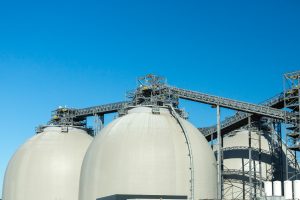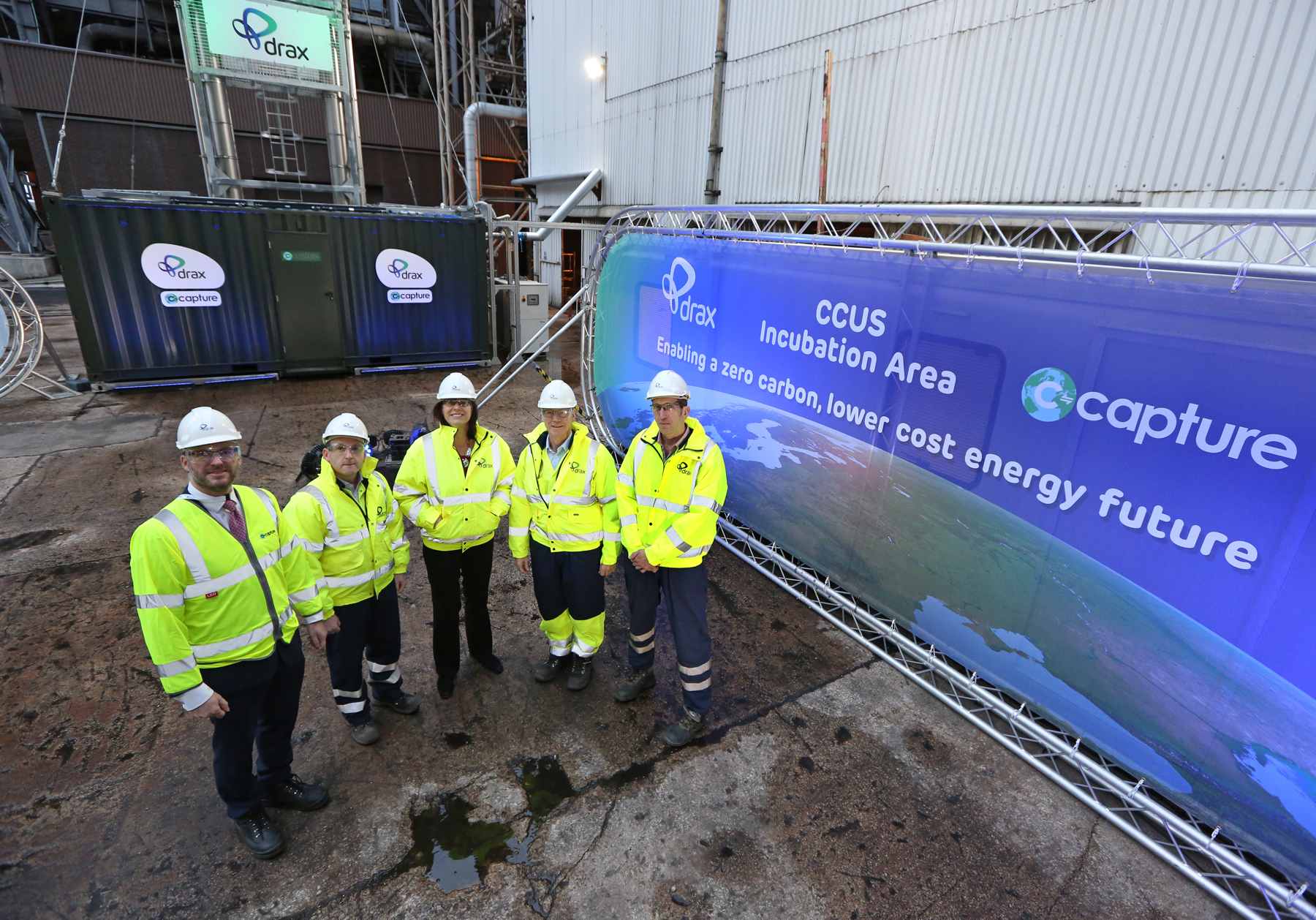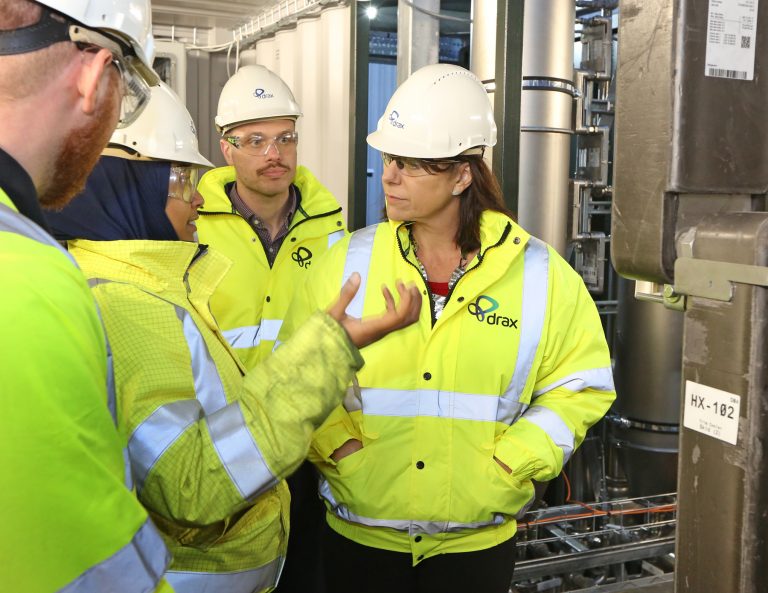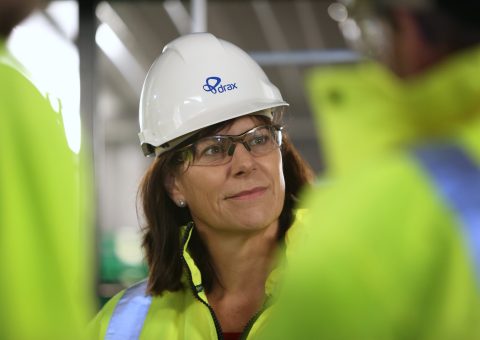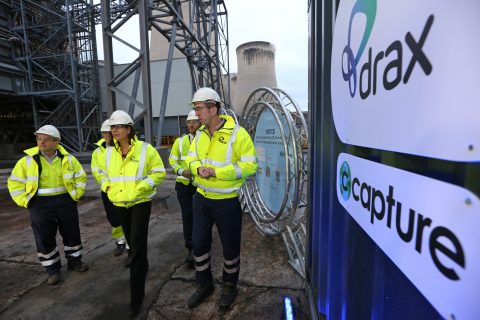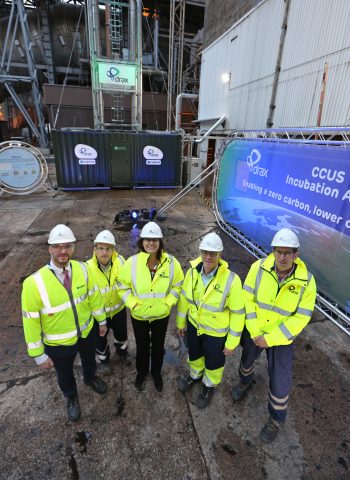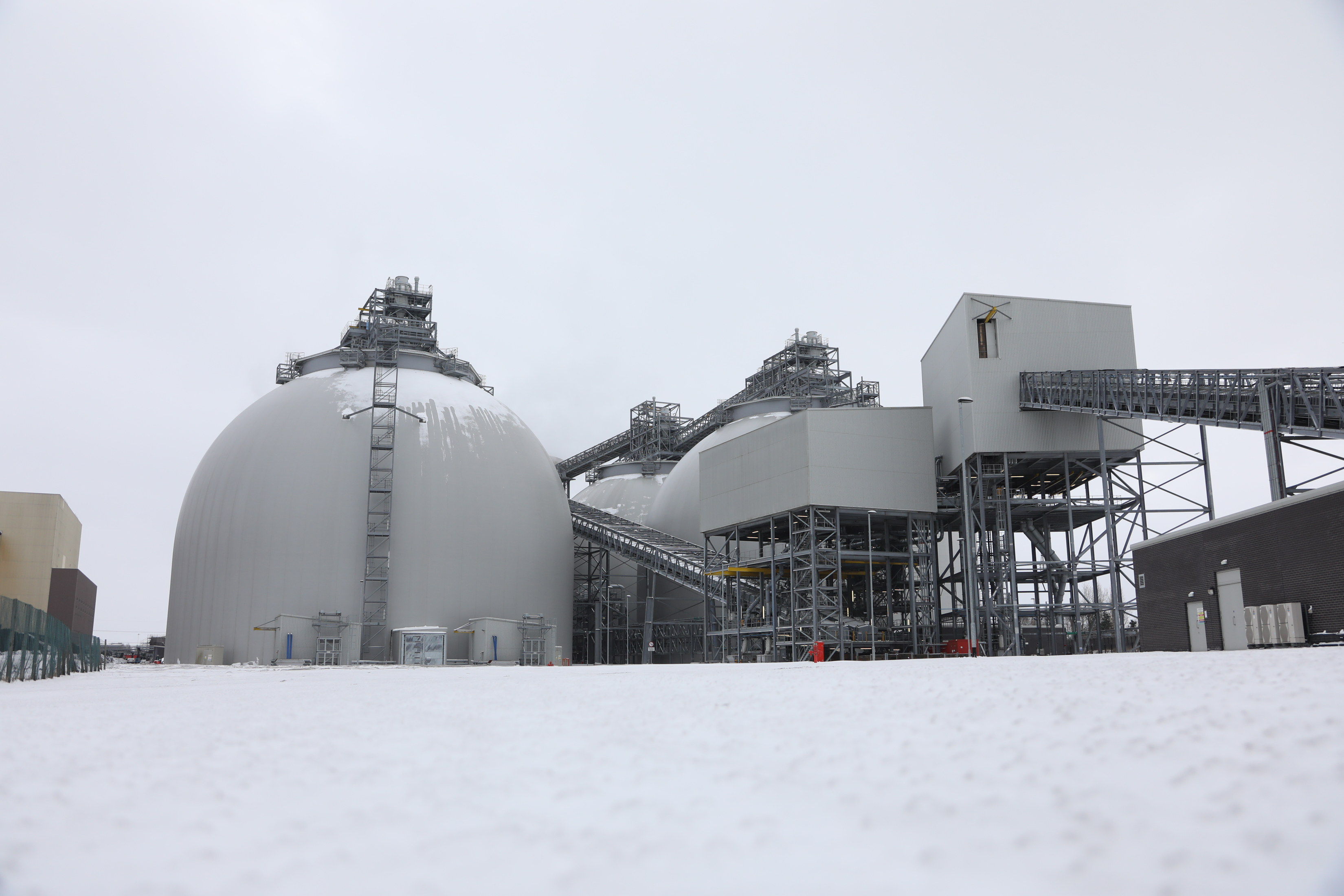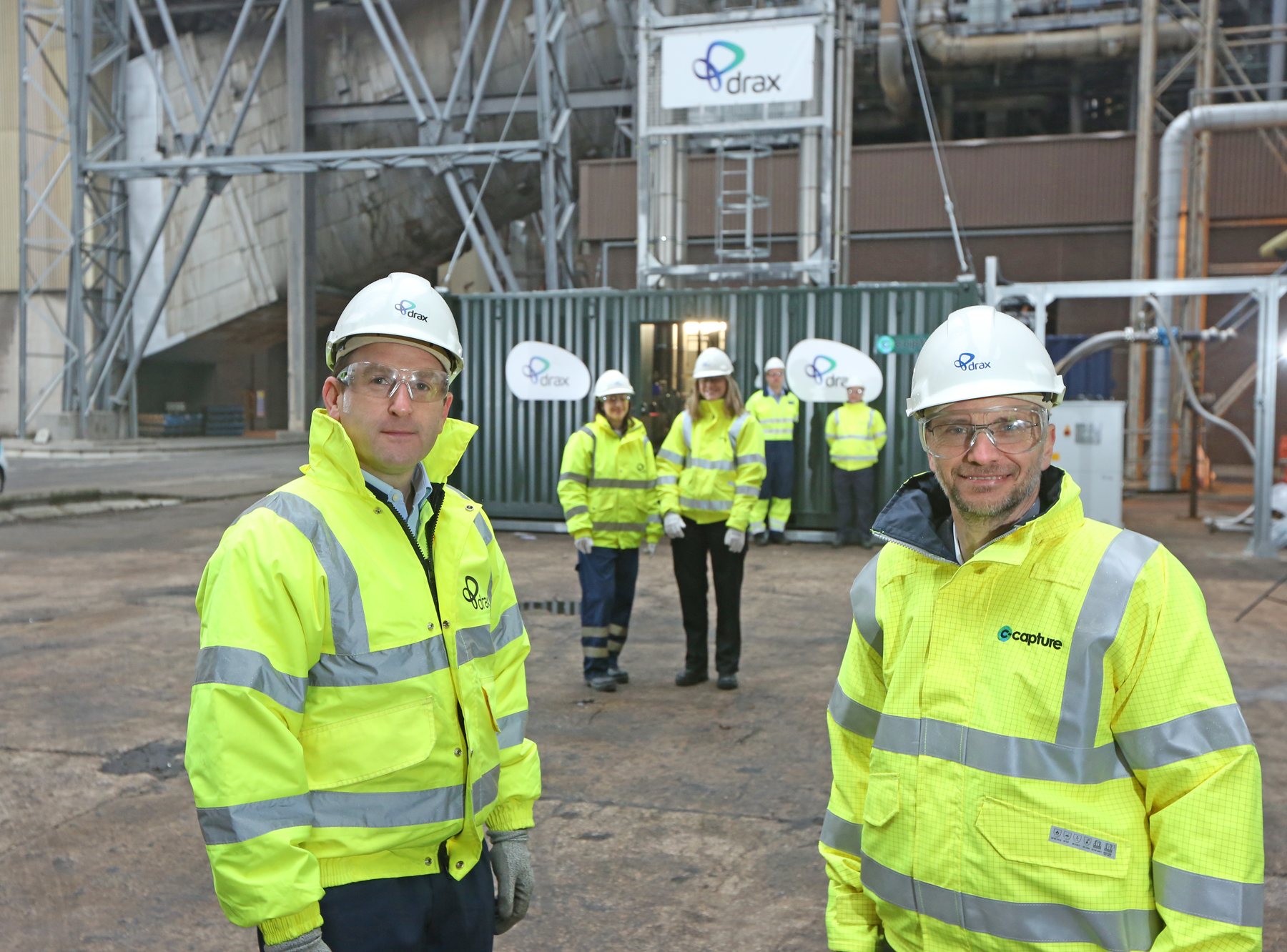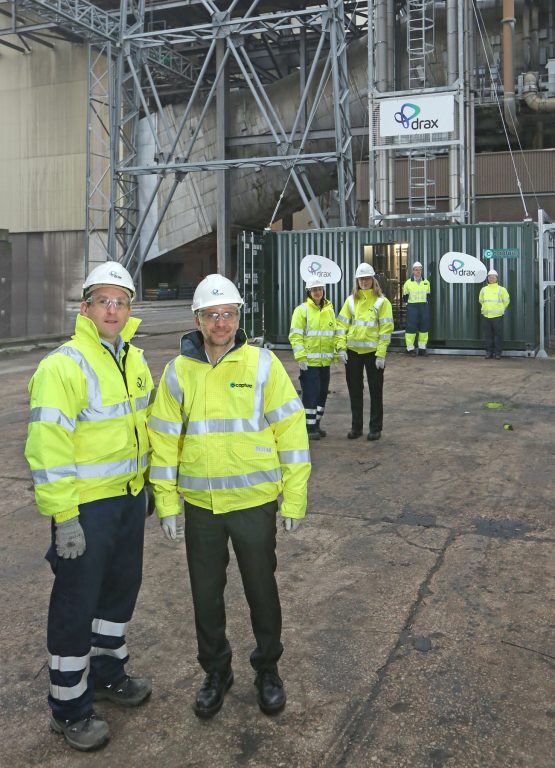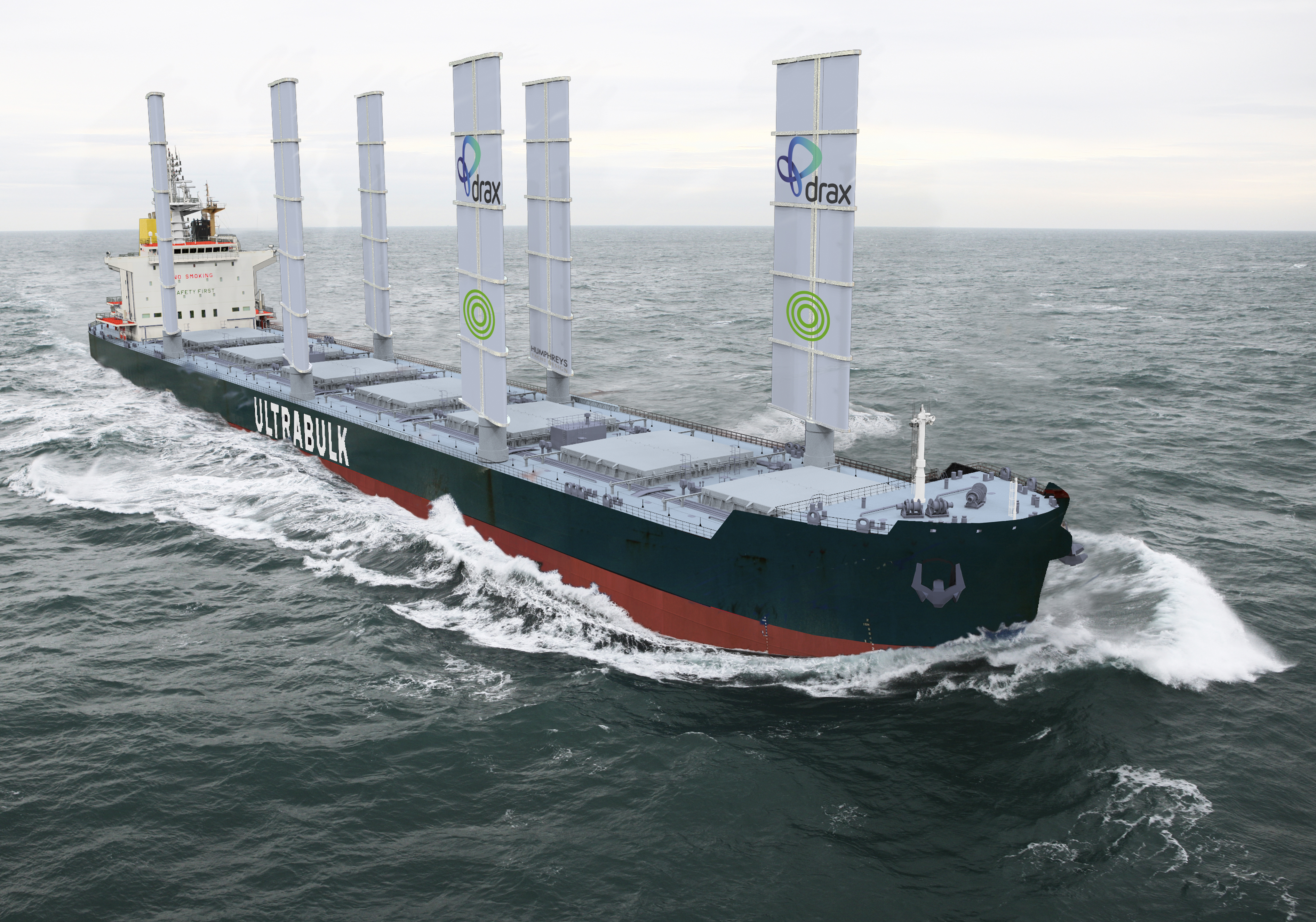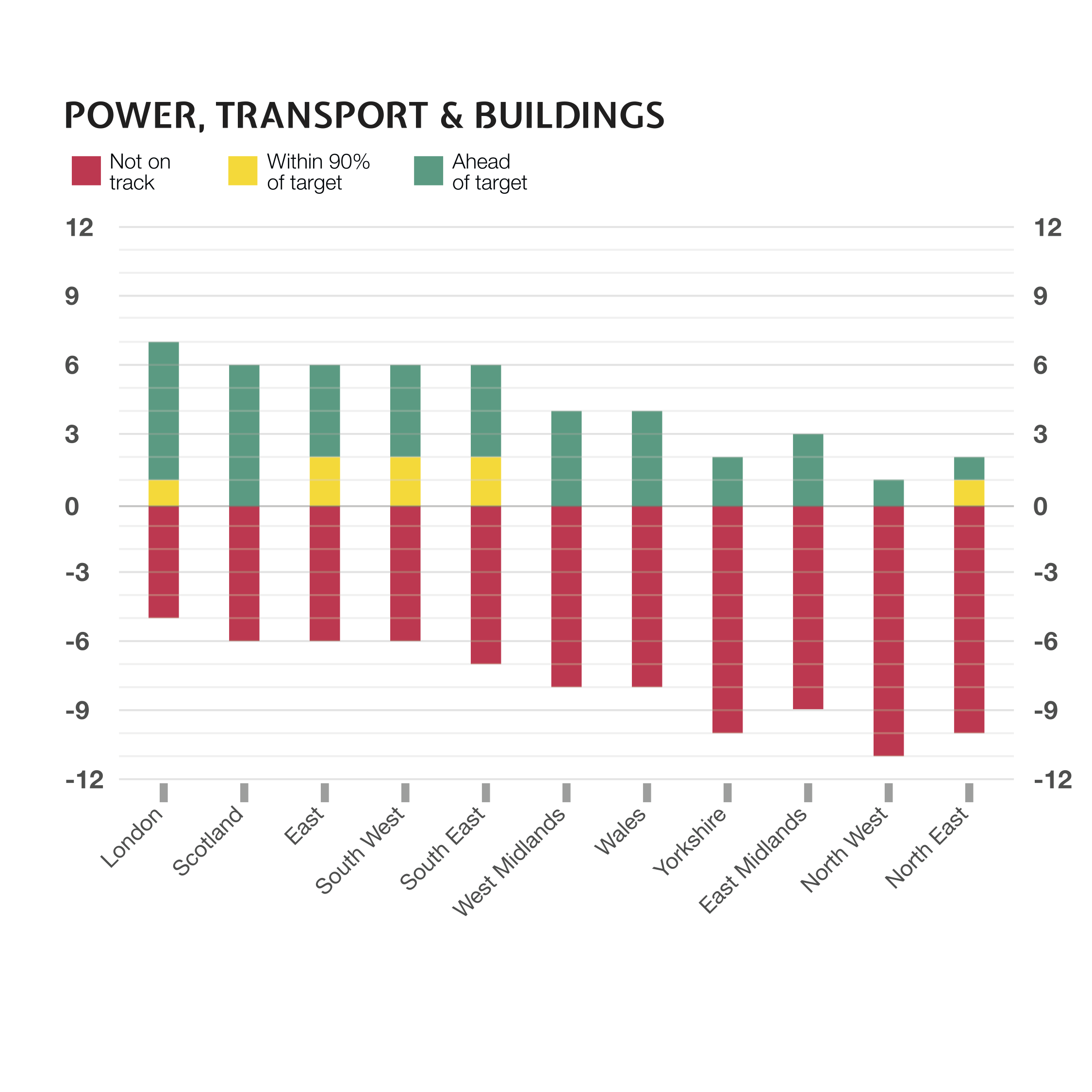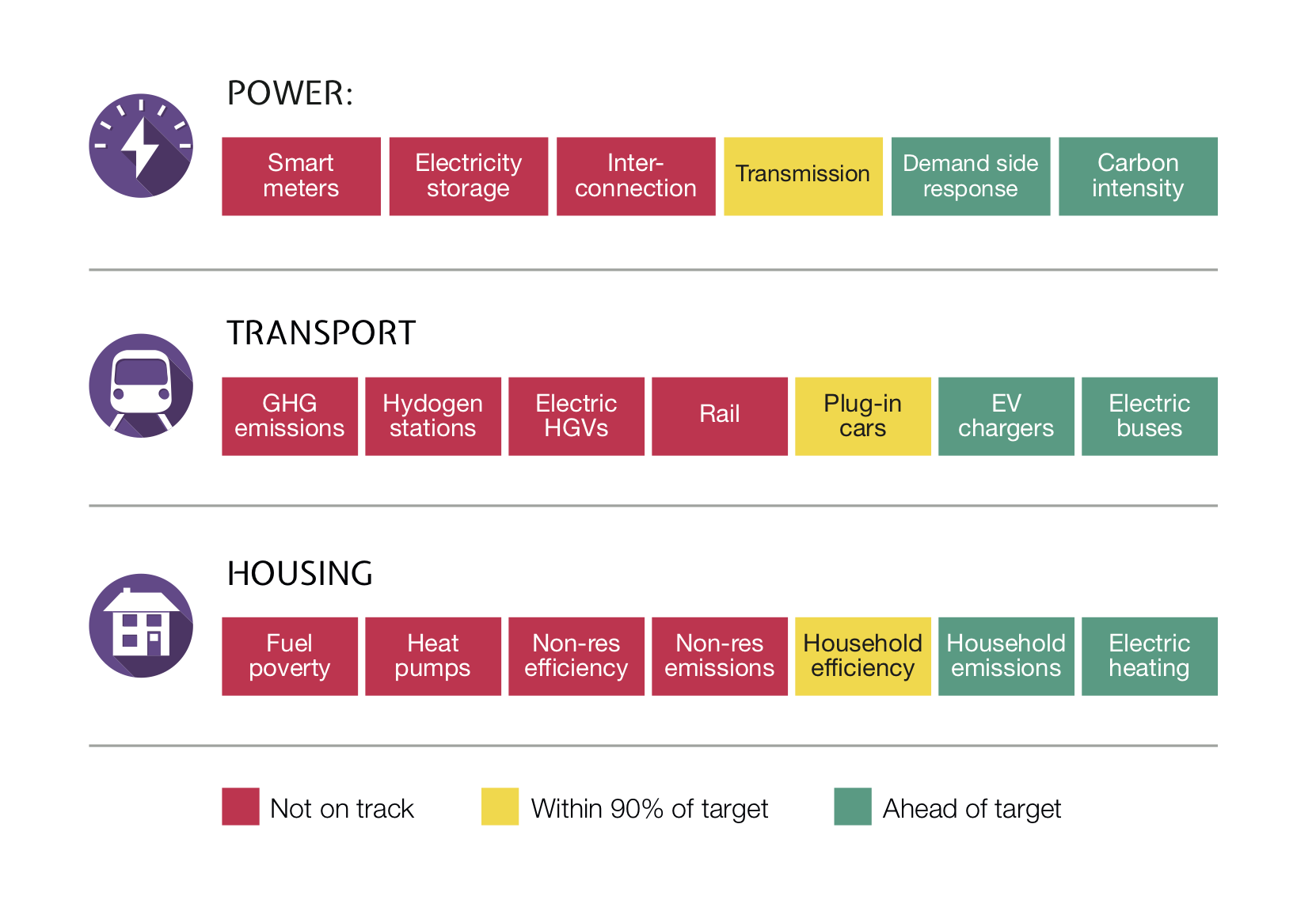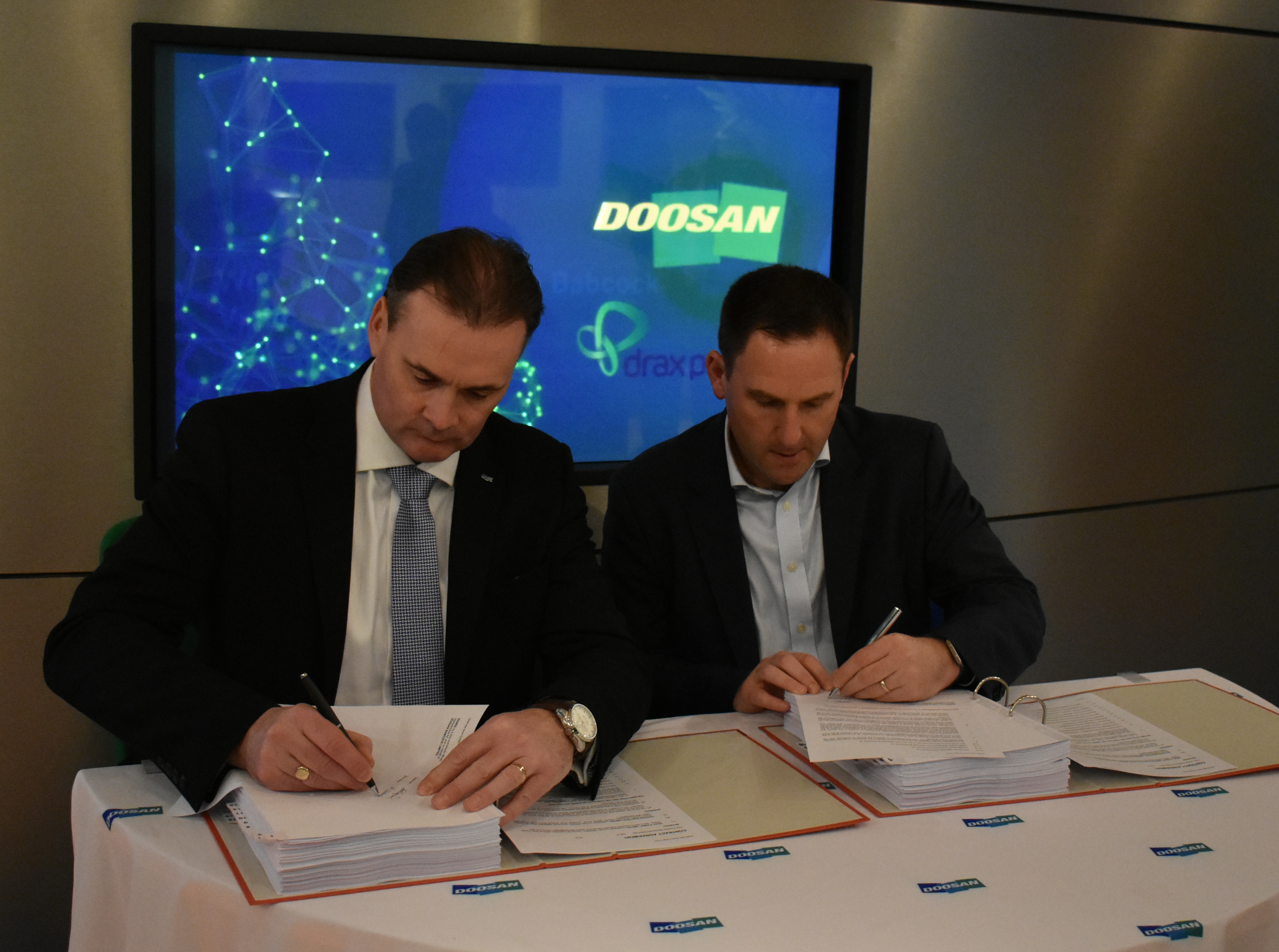
The deal, worth at least £60 million, continues to cement the strong relationship between both companies dating back to the construction of the plant near Selby, Yorkshire which was started 50 years ago.
The new four year partnership, with the option for a further four years, will strengthen workforce collaboration and improve efficiencies in maintaining and extending the life of the plant which is responsible for providing 7% of the UK’s electricity.
As Drax Power moves towards a low carbon future, Doosan Babcock will continue to be a strategic partner in the evolution of this critical national asset.
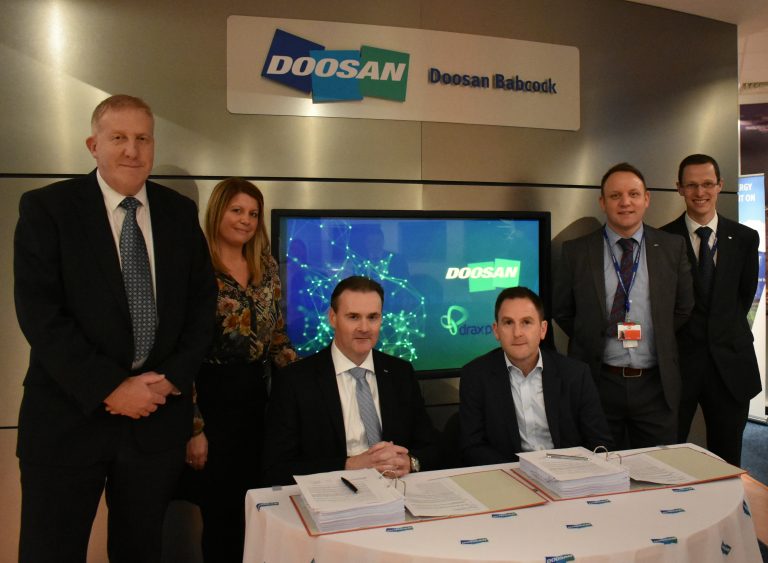
Andy Colquhoun, CEO of Doosan Babcock commented:
“Drax Power is one of the most progressive and innovative companies in the global energy sector so we are delighted to deepen our strategic relationship. This new agreement provides a platform for further collaboration in the years ahead as Drax continue to invest and evolve their assets.
“We have a long and proud history with Drax, from supplying the original boilers over 40 years ago, to supporting Drax as it transforms its business to meet the demands of the modern energy market.
“This agreement is testament to the hard work and dedication of our team, consistently delivering exceptional performance. Just recently we passed the milestone of over 3 million man-hours achieved over 9 outages without a Lost Time Incident dating back to 2014. I would also like to thank the Drax team for their support and dedication in the development of this new contract”
Andy Koss, Drax Power CEO, said:
“It’s vital that Drax continues to operate as reliably and flexibly as possible for the millions of homes and businesses which rely on the electricity we produce.
“This new contract will bring a closer working relationship with the Doosan Babcock team, delivering efficiencies whilst maintaining the high quality of work and standards of service required to maintain the UK’s biggest power station.
“We have converted two thirds of the power station to use biomass instead of coal, transforming the business to become the UK’s biggest renewable power generator and the largest decarbonisation project in Europe.
“This, along with our plans to repower our remaining coal units to use high efficiency gas, is preserving the future of the power station and protecting jobs – our operations support 5,700 jobs across the North and generate £600m for the regional economy.”
Doosan Babcock has supported Drax throughout the full lifecycle in helping to build, maintain and extend the life of Drax Power Station. As the Original Equipment Manufacturer (OEM) of the boilers, Doosan Babcock played a critical role in an unprecedented construction project which involved a workforce peaking at around 8000.
In 2003 Drax Power Station started co-firing biomass as a renewable energy alternative to coal. Doosan Babcock has supported Drax with research and development of biomass firing equipment through to the full project delivery of key technologies in this conversion process.
Drax’s biomass conversion project was one of the largest power plant modernisation programmes in UK history. Drax committed to transforming the business into a mainly biomass-fuelled generator using compressed wood pellets in place of coal.
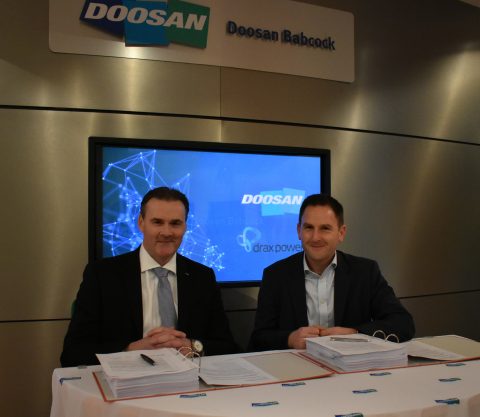 During the summer this year a fourth generating unit was converted from coal to use biomass – enabling Drax to generate more renewable power at the times the grid needs it the most. Around 70% of the power produced by Drax is now renewable, enough for four million households.
During the summer this year a fourth generating unit was converted from coal to use biomass – enabling Drax to generate more renewable power at the times the grid needs it the most. Around 70% of the power produced by Drax is now renewable, enough for four million households.
Drax Power also plans to repower the remaining two coal units to use high efficiency gas turbine technology and build up to 200MW of battery storage on site to provide additional flexibility. If these plans are approved, Drax could stop using coal as soon as 2023 – well ahead of the government’s 2025 deadline for unabated coal to no longer be used in power generation. Doosan Babcock will continue to support Drax throughout this transition.
Ends
Contact
Mark McDiarmid
Communications Manager, Doosan Babcock
E: [email protected]
T: 0141 885 3075
Notes to Editors
About Doosan Babcock
Doosan Babcock is a specialist in the delivery of engineering, aftermarket and upgrade services to the power generation, oil and gas, petrochemical and process sectors. With a focus on the delivery of low-carbon technologies and an industry-leading project management capability, the company builds, maintains and extends the life of customer assets worldwide.
For more information about Doosan Babcock, please visit www.doosanbabcock.com
About Drax
Drax Group plc plays a vital role in helping change the way energy is generated, supplied and used. Its 2,300-strong staff operate across three principal areas of activity – electricity generation, electricity sales to business customers and compressed wood pellet production.
The Group includes:
Drax Power Ltd, which operates the largest power station in the UK, based at Selby, North Yorkshire and supplies seven per cent of the country’s electricity needs. The energy firm converted from burning coal to become a predominantly biomass-fueled electricity generator. Drax is the biggest renewable power generator in the UK and the largest decarbonisation project in Europe.
Haven Power, based in Ipswich, supplies electricity to large Industrial and Commercial sector businesses.
Opus Energy, based in Oxford, Northampton and Cardiff, provides electricity and gas to small and medium sized (SME) businesses.
Drax Biomass, is based in the US and manufactures compressed wood pellets produced from sustainably managed working forests, supplying fuel used by Drax Power Station in North Yorkshire to generate flexible, renewable power for the UK’s homes and businesses.
For more information visit www.drax.com/uk




